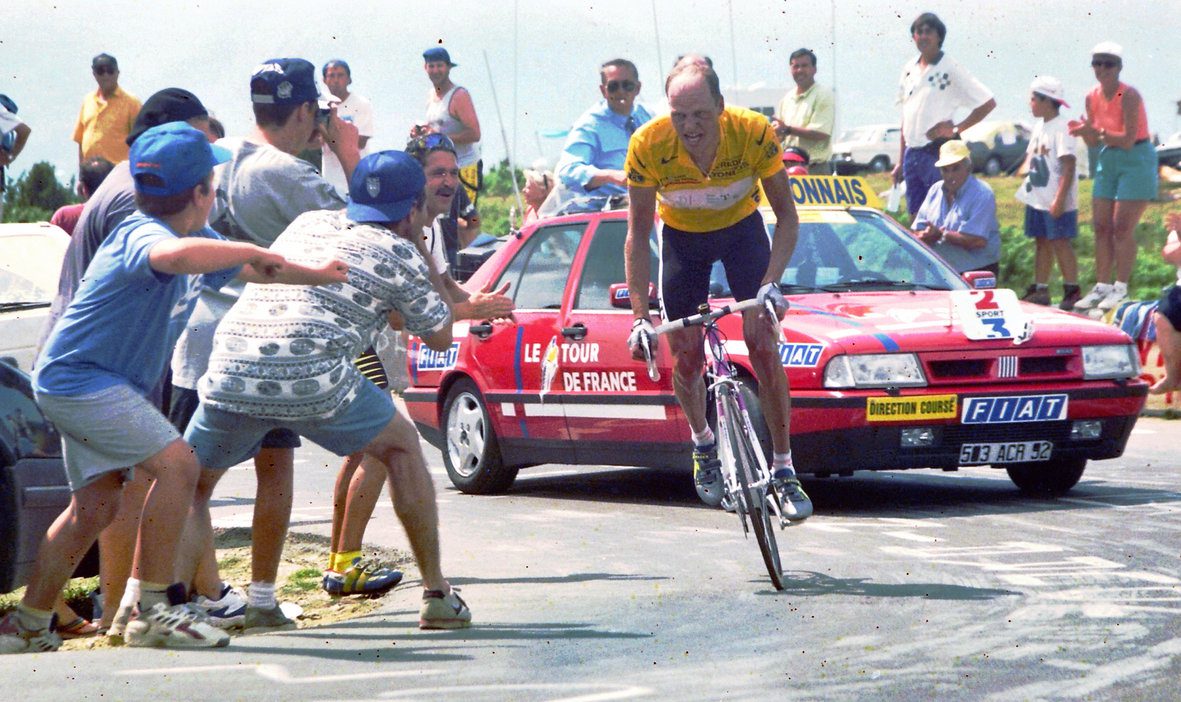Bjarne Riis bids farewell to cycling, starts new career
1996 Tour de France winner to move back to native Denmark

Having spent almost four decades as a professional cyclist, team owner, and manager, Bjarne Riis has bid farewell to the world of cycling, according to an article in the Danish outlet, Børsen. A prominent figure from the notorious 1990s era and the 1996 Tour de France champion, Riis considers his time in the sport to be over. He will instead shift his focus towards family and new business ventures. The Dane, whose nickname in Danish was the “Ørnen fra Herning” or, the Eagle of Herning (his hometown), said that his family has relocated from Switzerland to Denmark.
New business ventures
Recently, he co-founded Riis Energy, a company specializing in the sale of heat pumps imported from Lithuania. Additionally, he has assumed a position on the board of Nørtec, a company involved in the sale of laundry appliances and electric vehicle charging stations.
Chapter in cycling is now closed
“I have been in the world of cycling—that’s a closed chapter. I feel like doing something else,” he explained. “It’s a mishmash of circumstances.”
Once again, about a zillion Danes showed up to celebrate Jonas Vingegaard
Riis said he has a desire to spend more time with his two eldest sons and grandchildren, especially after becoming a grandfather for the second time to a little boy.
The Dane’s legacy, like so many pros in the era, was tarnished when it was discovered he had doped for most of his career.
Doping admission
In April 2007, Jeff d’Hont, a former soigneur for Bjarne Riis, exposed doping practices in cycling in his book, implicating Riis and other riders. Following that, Bert Dietz, Riis’ ex-Telekom teammate, admitted to doping during their time together, prompting confessions from other teammates and team doctors. Soon, hree more teammates, Rolf Aldag, Erik Zabel, and Brian Holm, confessed.
Responding to the admissions, Riis, issued a press statement acknowledging “mistakes” and openly confessed to using EPO, growth hormone, and cortisone from 1993 to 1998, including during his 1996 Tour de France victory. After retiring from cycling, Riis went on to work as a directeur sportif for several teams, including CSC.
Fan of Jumbo-Visma
He does admit to still watching bike racing, as a fan.
“I still keep track of the sport– probably a bit too much, if you ask my wife–and if you look at Jumbo-Visma, they are just so skilled,” Riis said.
“Of course, they have a large budget, but nothing is left to chance, and they do everything they can to chase the marginal gains that can give them a competitive advantage. Communication-wise, they could do better, in my opinion, but in all other areas, they are so far ahead of the rest. So why don’t other teams do more to catch up with them? I just can’t understand. If you are second-best and want to beat the best, you have to be innovative and creative, be smarter, or train harder, and I can just see that they are not doing that.”
Persona non grata at 2022 Tour de France
When the Tour de France began in Denmark in 2022, the then only Danish Tour winner (fellow countryman Jonas Vingegaard won that year, and 2023) was not invited to the Grand Départ in Copenhagen. The official explanation was that the priority was given to inviting politicians over former cyclists, while Riis himself stated that he was “disappointed not to be included.”
“I thought it was a very strange feeling,” he says today. “It was probably a bit more challenging than I had anticipated it would be. But I simply don’t think they knew where to
place me.”
His legacy
The article addresses his doping history, saying that given his betrayal to the fans, there are probably those who will say that Riis “deservedly still has to be dragged with the sins of the past, while others have aired the view that he has been treated disproportionately harshly compared to other doping offenders of his time.”
When asked his thoughts on the question, he is slow to respond, the report says. “Oh, I don’t know,” he begins. “I think everyone has struggled with theirs, but obviously I’ve probably been one of the best in that era, and therefore I’ve probably been more exposed.”
On forgiveness for cheating
As far as whether the negative response to his past is still warranted, he said he doesn’t really know how to answer.
“I’ve never hidden away, and I’ve always put up with beatings over the years. I have acknowledged my mistakes and moved on,” he said. “But just because I have done something wrong at one time does not mean that I am a bad person. I can still be a good leader and I can still inspire people.”
The struggles of Jan Ullrich
He also spoke of his former teammate, Jan Ullrich, who is the subject of a new documentary and recently confessed to doping, many years later.
“I just thank myself for being a strong person and for having a good family behind me. Of course, I have had my crises and bouts with depression. If I hadn’t been strong, I probably would have had a slightly different life,” he said.”Just take Jan Ullrich.”
Jan Ullrich on his downfall: Massive amounts of cocaine, and drinking whiskey like water
After leaving cycling, the German Tour winner struggled with alcohol and drug addiction for many years, among other things, after admitting to taking doping. He spent time in a psychiatric hospital, but is now sober and grounded, according to reports.
